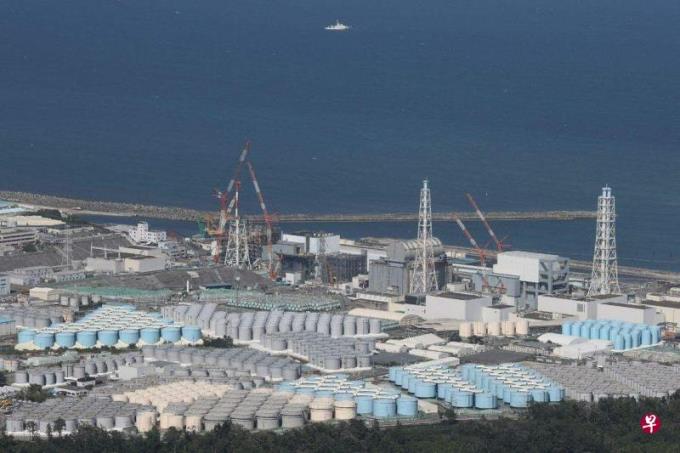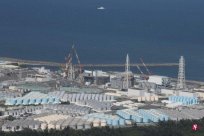
The Fukushima Nuclear Power Plant in Japan began to discharge processing nuclear waste water into the sea on Thursday (August 24).For Japan, the Fukushima nuclear treatment water has long burst into storage. How to deal with it has been suspended and unreasonable. Now it is finally the first step.
Tokyo Electric Power Company began to treat the first batch of nuclear water for water on Thursday at noon.According to reports, this round of emissions will last for 17 days, with a total output of 7,800 tons.
This year's four -wheel emissions released 31,200 tons accounting for a total of 2%
Dongdian also announced the long -term discharge target. There will be four discharge operations this year, and about 312,000 tons of water will be released, accounting for about 2%of the total amount of water treatment water.According to the plan, such release operations will last about 30 years.
The Minister of Economy and Industry of Japan said to the media on Thursday: "The implementation of this discharge plan means that the Fukushima First Nuclear Power Station has taken a big step forward."
On March 11, 2011, due to the impact of the East Japan earthquake and the tsunami, the FOD Nuclear Power Plant was destroyed. In order to cool the nuclear fuel, a large amount of nuclear waste water was discharged.In recent years, Dongdian has used the purification system to remove most of the radiation substances in nuclear waste water, and then store nuclear treatment water in more than 1,000 storage tanks.At present, the stock has reached 1.34 million tons, which is 98%of the storage facilities.After many years of discussion, the official finally decided to discharge these water.
Japanese media reports all emphasized that these nuclear treatment water still remains difficult to remove radioactive substances (Tritium). They also quoted Dongdian data here that the filtered residue has been diluted to the forty national standards of Japan.One of them.In order to soothe the people's hearts, Dongdian also stated that "the concentration of radioactive substances will be continuously monitored during the discharge period, and the concentration of radioactive substances will be measured."
For the security of nuclear treatment of water, Japan Economic News commented that it is difficult to say that Japanese fishery groups and consumers are convinced so far.With the development of nuclear treatment water emissions plans, how to accept people will be the official challenge.
China Lu, Hong Kong and Macau strictly prohibit Japanese aquatic products import Japanese side protest
Mainland China, Hong Kong, and Macau have announced that they will have a comprehensive suspension of importing Japanese aquatic products, and Japanese officials have protested on this.
Japanese Prime Minister Kishita Tianshio said on Thursday that Japan has asked China to "cancel" the ban on Japan's seafood immediately.He asked China to act according to scientific demonstrations and do not tighten import control measures.
NHK quoted the Professor of Yqiao University, a professor of international politics and nuclear policies, pointed out that China forcibly opposed it because the superficial reason is that it is worried about environmental pollution, but it does not rule out that China insists on obtaining diplomatic advantages.
NHK said that the top priority is whether Japan can gain the overall trust of the international community, and for this reason, it is necessary for the Japanese government to continue to provide accurate information.
Han maintaining the Fukushima aquatic product ban called in Japan to transparently and openly deal with water information in the next 30 years
On Thursday, Zhao Chenghuan, Minister of Aquatic Aquatic Aquatic Aquatic Products, said that the Japanese side decided to discharge nuclear treatment water. As a member of the international community, the Korean side cannot accept it.However, he emphasized that South Korea has never expressed its approval.He said that the nuclear treatment of water will cause indirect losses such as the shrinking of aquatic products.
South Korean Prime Minister Han Yan called on the Japanese government to "transparently open" information about Fukushima in the next 30 years; he shows that South Korea will maintain the ban on the import of Fukushima aquatic products.
South Korea's polls in June showed that 84%of the people interviewed opposed Japan's nuclear treatment of water.On Thursday, some demonstrators tried to break into the Japanese embassy in the Seoul, and at least 14 were arrested by police officers on the scene.



